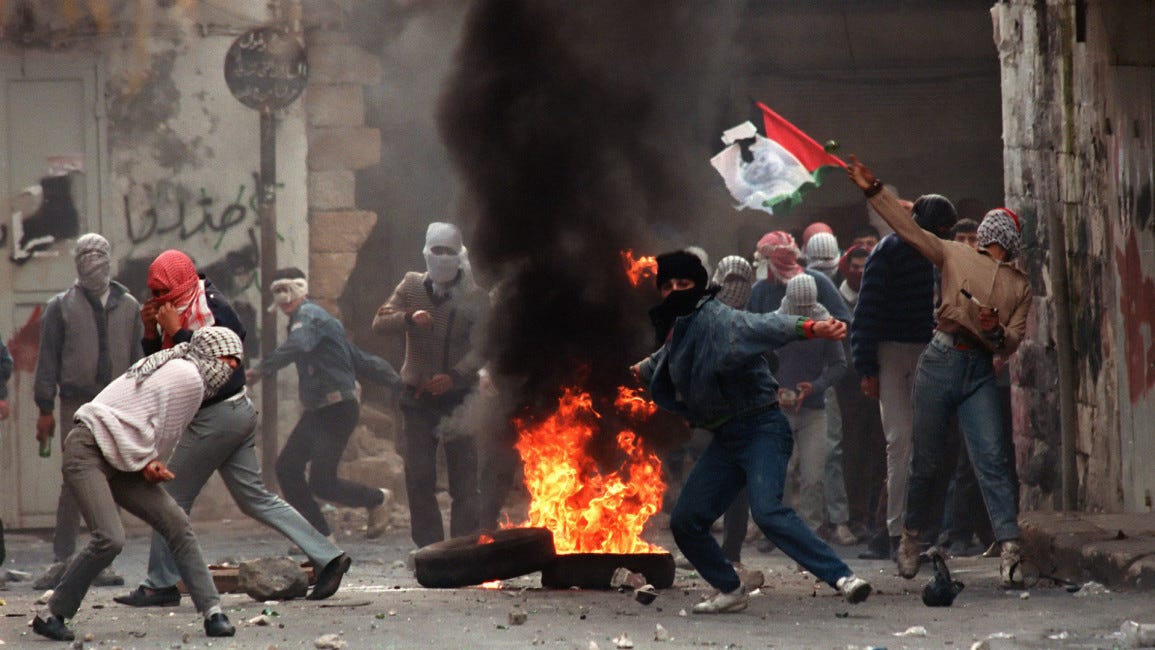TURNING POINT
SEPTEMBER 28 MARKS 24 YEARS SINCE THE START OF THE SECOND INTIFADA. IF WE DO NOT UNDERSTAND THE LESSON OF THAT DAY, WE WILL NEVER KNOW PEACE.
Intifada: What Western activists think peace looks like.
September 28 marks the 24th anniversary of the start of the Second Intifada. This was the turning point not only for the Palestinian movement – but for Western activists and leftists worldwide. It was the day that we signed on to the idea that violence is OK even when a negotiating partner is sitting jilted at the bargaining table.
I’m spending a bit of time on recent history this month, because if you do not understand what happened on September 28, 2000, you do not understand why there is war in Gaza today, why the Israeli-Palestinian/Arab conflict continues after 75 years or how Western activists made a grievous error on that day and are damn well sticking to it (as I wrote this week).
While the intifada came as a surprise to Western eyes, the warning signs were there. As the sides came closer to a negotiated resolution, Palestinian violence was actually increasing, not decreasing.
While this seems counterintuitive, if we accept the actual facts of the conflict, this makes sense. The potential of a peaceful settlement was not a hopeful sign to most Palestinians, but a threatening one.
If they had stuck to the tenets of the peace process, it would have resulted in a two-state solution, a state of Palestine alongside the state of Israel.
This, of course, has never been the goal of the Palestinian movement, despite a few years in the 1990s of Arafat convincing Western diplomats and funders that it was.
A two-state solution would have ended the quest for total victory over the Zionist usurper.
Arafat confirmed his duplicity when he signed onto the Oslo process and then failed to adhere to its tenets. This was rightly confusing to world observers. But in the context of the Palestinian strategy it was entirely consistent.
Arafat had backed himself into a corner. Throughout the peace process, he had continued promising in Arabic total victory over the Zionists while making the most modest concessions imaginable in English to convince the world that he was a legitimate partner for peace.
Since negotiation means compromise, and he had promised nothing short of total conquest over Israel, Arafat’s handshake on the White House lawn was, by definition, both compromise and defeat. As Edward Said wrote,
Keep reading with a 7-day free trial
Subscribe to Pat’s BEATEN WITH A SHTICK Substack to keep reading this post and get 7 days of free access to the full post archives.


